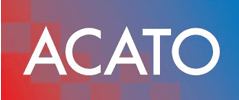Certification for Companies
Sustainability is the top priority. This requires changes within companies. This is why more and more companies are addressing the issue of certification. Does certification give companies a measurable competitive advantage?
Why should companies have their management system certified?
Certification helps companies to ensure the effectiveness and efficiency of their management system, processes or products in the long term. The certification of a management system by an accredited certification body has significant advantages. The annual audit offers much more than just a pure confirmation of conformity. A certified management system helps to strengthen the company’s competitiveness. Business success is permanently improved through the sustainable actions of all those involved. With an ISO certification, you show your customers greater reliability through the application of the ISO standard. When it comes to information security (ISO 27001), suppliers will also cooperate more calmly because their security needs are also taken into account. Employees stay loyal to their organization longer because they see their jobs as being sustainably secure. This attracts not only skilled workers but also friendly investors. The application of recognized standard procedures demonstrates that your company is being managed efficiently in the long term.

What is an ISO certification?
Certification is confirmation by a neutral body that the requirements of the respective international ISO standard are met. Industry-specific specifications may also be added. The audit by an accredited certification body is based on a conformity assessment. Auditors check whether the fulfillment of the requirements corresponds to the specifications of the standard. Companies can be certified for management systems (e.g. ISO 9001 or ISO 27001) or for (medical) products. Personal certifications serve to prove the qualifications of experts (e.g. SLC certified DPO).
The certification process for companies
The essential prerequisite for certification is an independent, impartial and objective assessment by an accredited certification body (e.g. bsi, TÜV, SGS). The certification process is part of a rolling cycle consisting of initial certification, two surveillance audits and recertification. After recertification, there are two more surveillance audits and then another recertification. The period between initial certification and recertification is usually at least three years. The surveillance audits take place annually.
Therefore, the certification granted must be maintained annually through surveillance audits. Therefore, the certification audit is always part of an ongoing certification process. The certification audit consists of document reviews and an on-site inspection. In more complex organizations with several locations or branches, several meetings with interviews and on-site inspections take place. This can also be referred to as a full system assessment and system monitoring.
In the actual certification audit, auditors sent to check conformity with certain standards or regulations. An audit usually takes place on the premises of the company seeking certification. For virtually organized companies, it is more difficult to interview the various people involved in one place. Remote audits are therefore often helpful here. However, it is problematic when there are dangers to life and soul (e.g. pandemics, wars, flooding), because then the audit can also be carried out completely virtually with special permission. However, remote audits (not on site) are usually used to supplement the main part. After a certification audit, the audit manager (also known as lead auditor) prepares an audit report. This documents the results of the audit and highlights any weaknesses. This report must be checked together with the evidence by the veto body of the certifier. After conformity has been established and confirmed by the certification body, the certificate can be issued or extended. The certificate contains both the scope and the period of validity of the certification.
What ISO certifications are there?
Management systems are either set up as separate sets of rules or combined into an integrated system. Company certifications are therefore carried out in accordance with the selected ISO standard. The most well-known certification is carried out in accordance with thequality management standard ISO 9001. Auditing and certifying integrated management systems is demanding for the audit team, but it is made easier by the rules of harmonization.
The following management system standards are used most frequently worldwide:
- ISO 9001 – Quality management
- ISO 13485 – Medical devices
- ISO 14001 – Environmental management
- ISO 15378 – Primary packaging for pharmaceuticals
- ISO 21001 – Management System for educational institutions (EOMS)
- ISO 22000 – Food and feed safety
- ISO 26000 – Sustainability management
- ISO 27001 – Information security
- ISO 45001 – Occupational health and safety
- ISO 50001 – Energy management
Which companies can get certified?
Any company or organization can seek certification. The management system must be implemented and operated according to a certifiable standard. If the management system meets the requirements for auditing by an approved (accredited) certification body, it can be certified even if it is in compliance. The size, type or industry of the company or organization has no direct impact on an organization’s chances.

